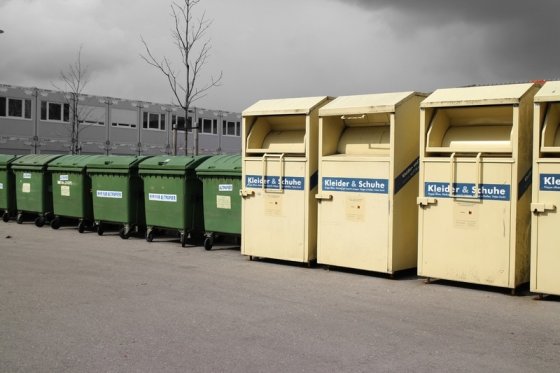In the dynamic world of retail, businesses face constant pressure to maintain profitability while meeting the growing demands for sustainability. Balancing these priorities can be challenging, but by implementing effective waste management techniques, cost-minimising strategies, and sustainable practices, retailers can achieve both economic and environmental goals.
This blog post delves into practical approaches for reducing waste and costs in retail operations, showcasing how these efforts not only benefit the bottom line but also attract eco-conscious consumers.

Table of Contents
Techniques for Effective Waste Management
Effective waste management is crucial for retail operations to minimise their environmental impact and optimise resource use. Here are some key techniques:
- Conducting a Waste Audit: Begin by assessing the types and quantities of waste generated. This audit helps identify areas where waste can be reduced or recycled.
- Implementing Recycling Programs: Establish recycling stations throughout the store for materials such as cardboard, plastic, and paper. Partner with local recycling facilities to ensure proper disposal.
- Reducing Packaging Waste: Opt for minimalistic and eco-friendly packaging options. Encourage suppliers to use recyclable materials and bulk packaging to reduce waste at the source.
- Composting Organic Waste: For stores with food sections, composting organic waste can significantly cut down on landfill contributions and produce valuable compost for local gardens and farms.
Strategies for Minimising Operational Costs
Cutting operational costs without compromising on quality is essential for maintaining competitiveness. Here are some strategies to achieve this:
- Energy Efficiency: Upgrade to energy-efficient lighting, heating, and cooling systems. Utilise smart thermostats and motion sensors to optimise energy use.
- Inventory Management: Use advanced inventory management systems to track stock levels accurately. This helps prevent overordering and reduces storage costs and waste from unsold goods.
- Staff Training: Train employees on efficient work practices, energy conservation, and waste reduction. Empowering staff with the knowledge to identify cost-saving opportunities can have a significant impact.
- Outsourcing Non-Core Activities: Consider outsourcing services such as cleaning services for retail stores. Professional cleaning services can ensure high standards of hygiene and presentation while allowing staff to focus on core activities.
Sustainability Practices That Cut Costs and Attract Eco-Conscious Consumers
Sustainability is no longer just a buzzword; it’s a critical component of modern retail strategy. Implementing sustainable practices can reduce costs and attract a loyal customer base. Here’s how:
- Sustainable Sourcing: Source products from suppliers who use sustainable practices. This can reduce costs associated with waste disposal and enhance brand reputation among eco-conscious consumers.
- Eco-Friendly Products: Stock eco-friendly products that appeal to environmentally aware shoppers. Highlighting these products can increase sales and customer loyalty.
- Water Conservation: Implement water-saving measures such as low-flow faucets and efficient irrigation systems for any landscaping. Reducing water usage lowers utility bills and supports sustainability goals.
- Green Marketing: Promote your sustainability efforts through green marketing campaigns. Consumers are increasingly looking for brands that align with their values, and showcasing your commitment to the environment can differentiate your brand.
Reducing waste and costs in retail operations is not only beneficial for the environment but also for the business’s profitability
Embracing these strategies positions retailers as leaders in sustainability, appealing to the growing segment of eco-conscious consumers and paving the way for long-term success.
Implementing these practices may require an initial investment, but the long-term benefits in cost savings, customer loyalty, and brand reputation make it a worthwhile endeavour. As retailers navigate the evolving landscape, prioritising waste reduction and cost efficiency will be key to thriving in a competitive market.



